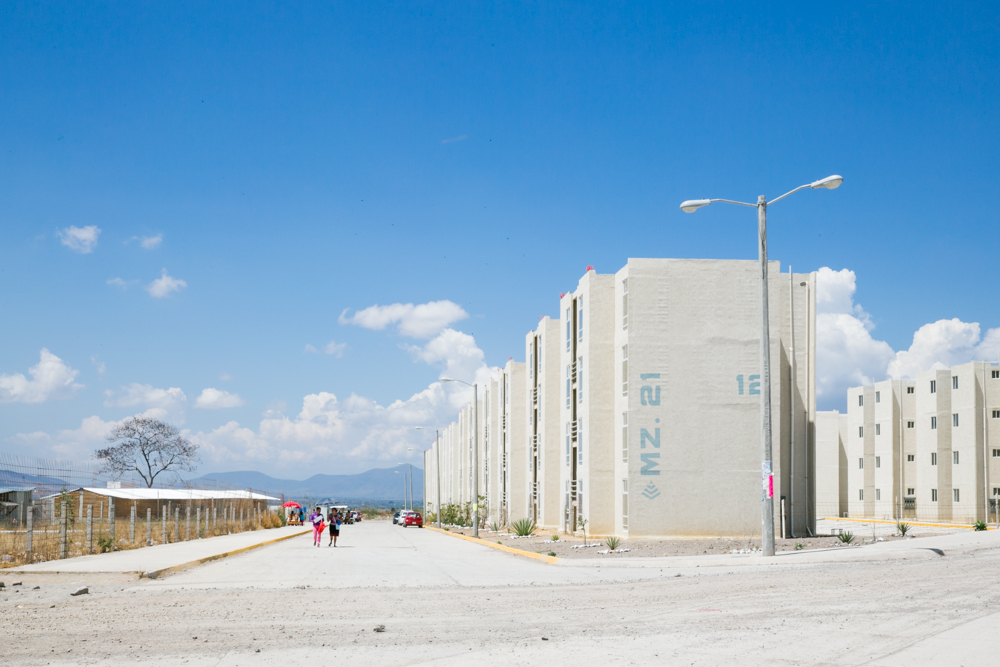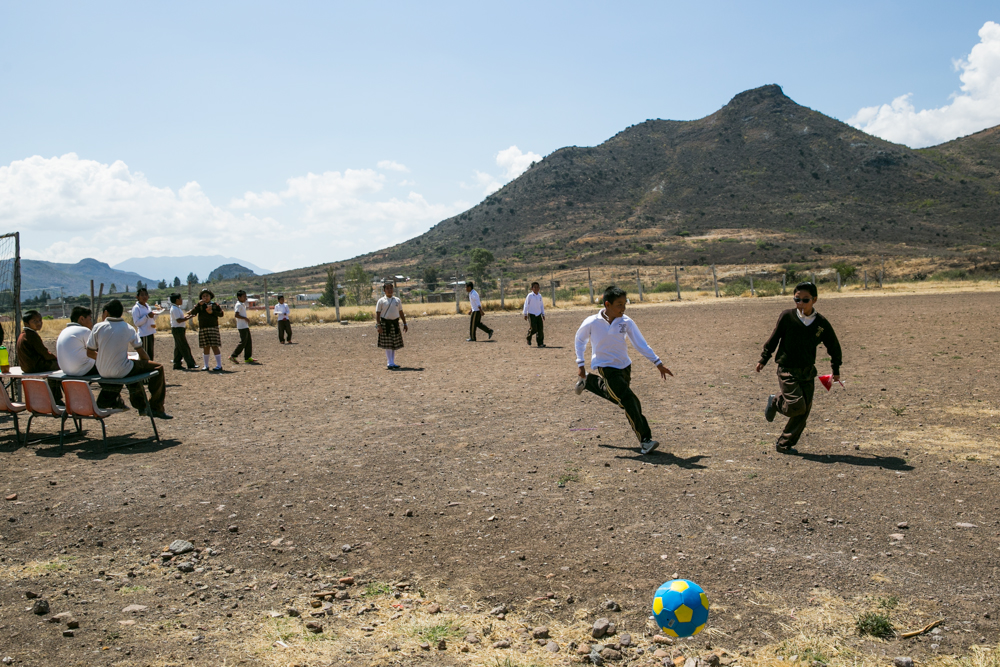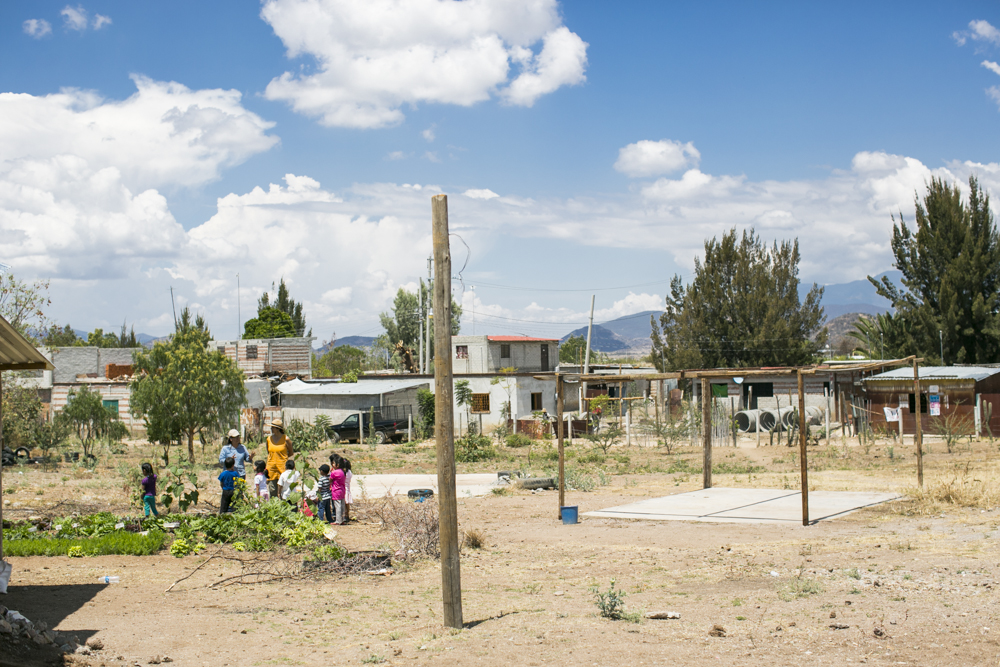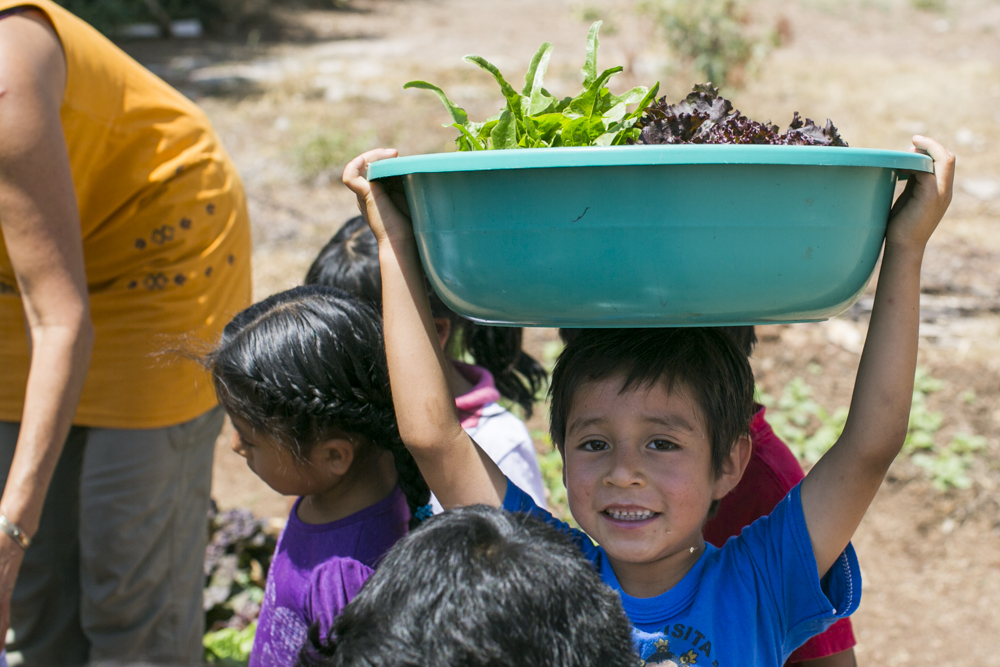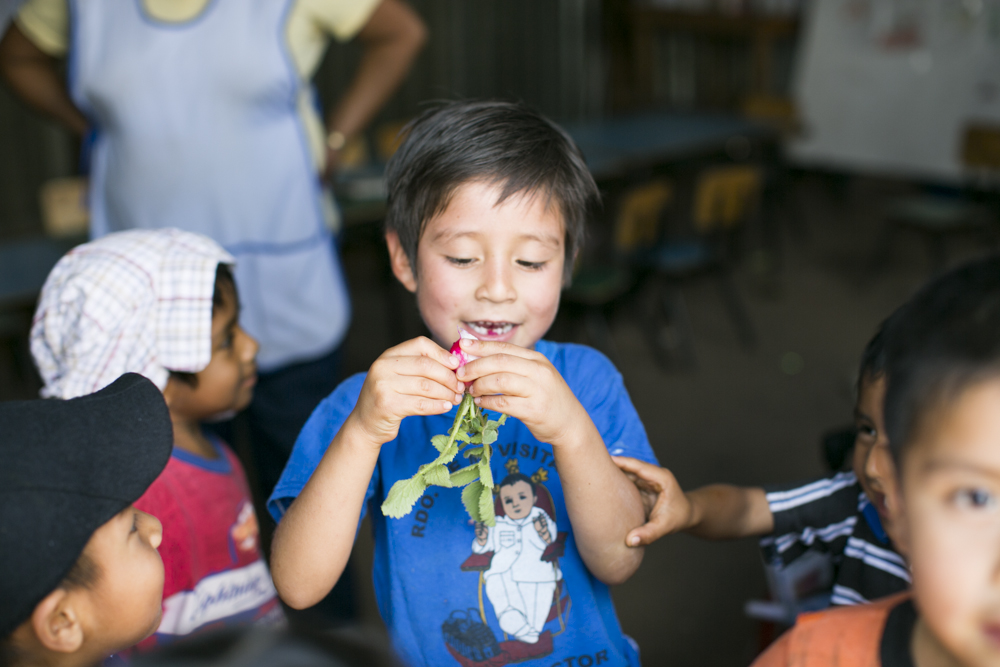Potatoes, Swiss Chard, and Kalamata Olive Almond Pesto
Lorena Harp’s Solar Oven Potato Salad
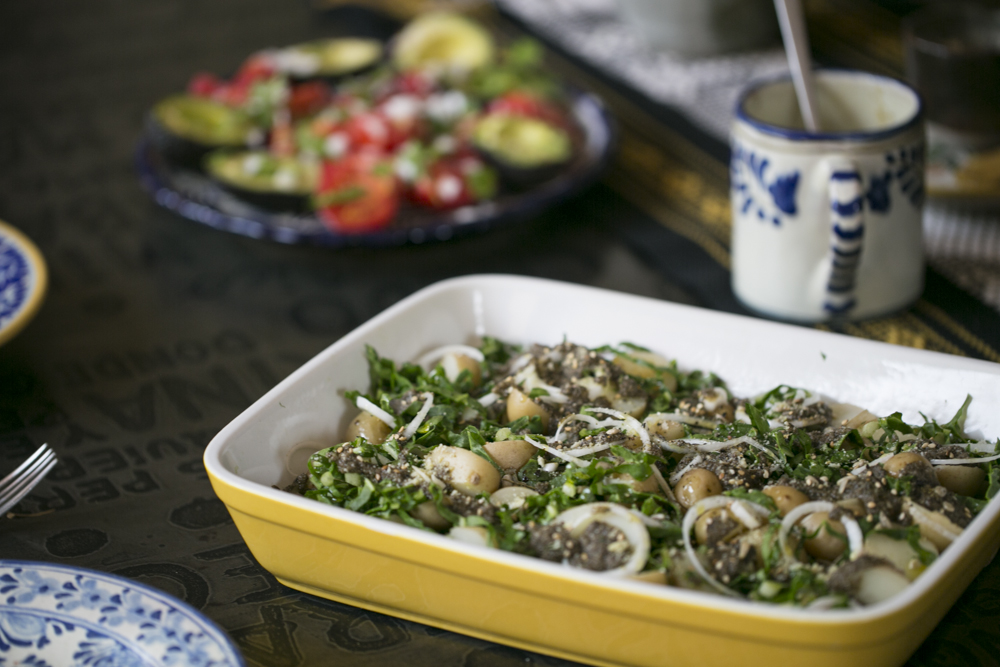
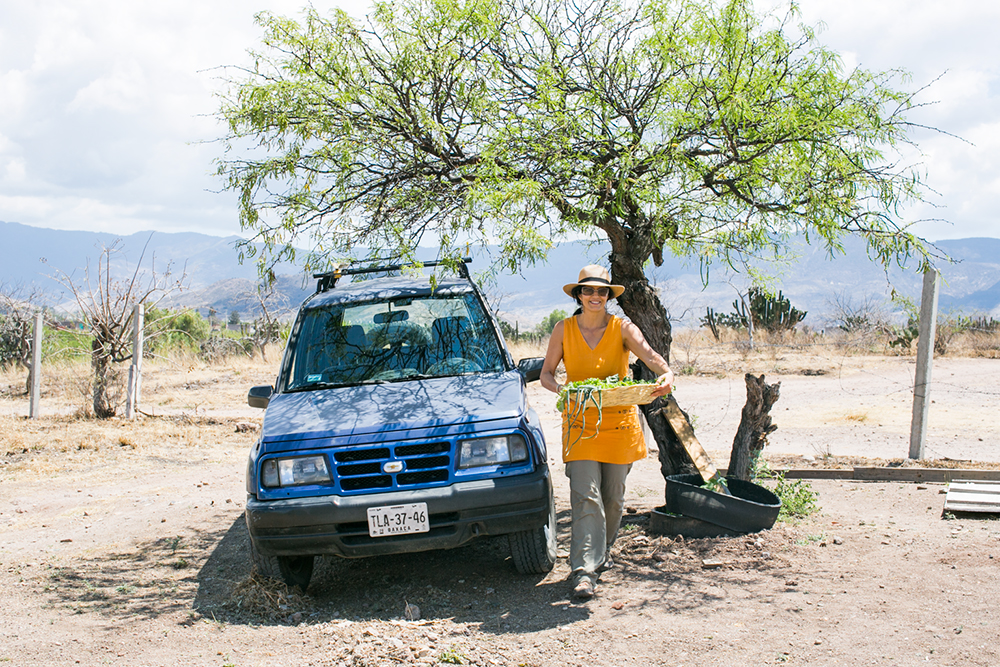
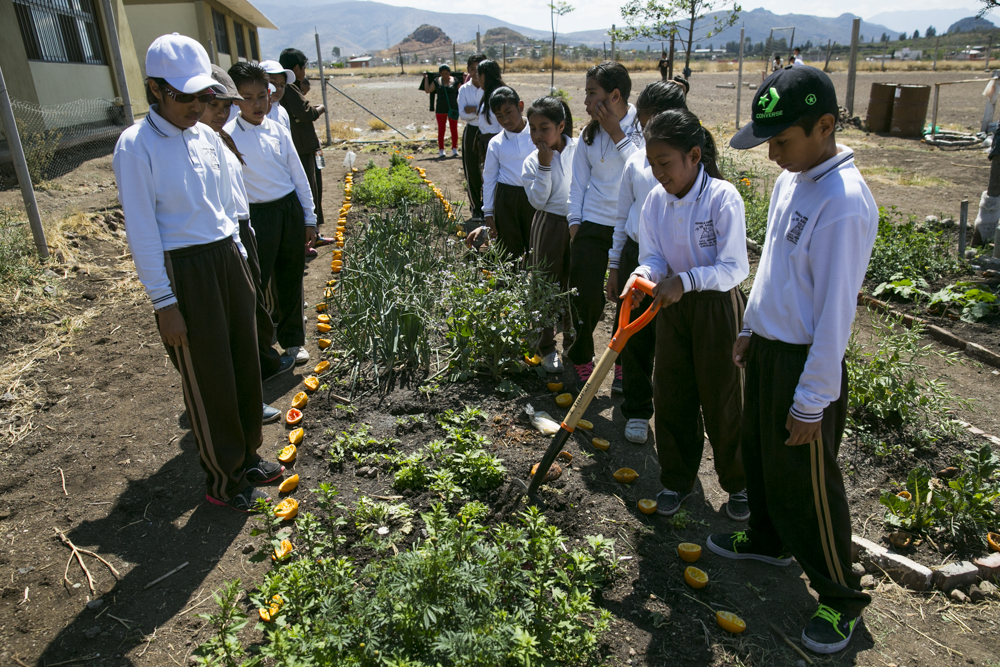
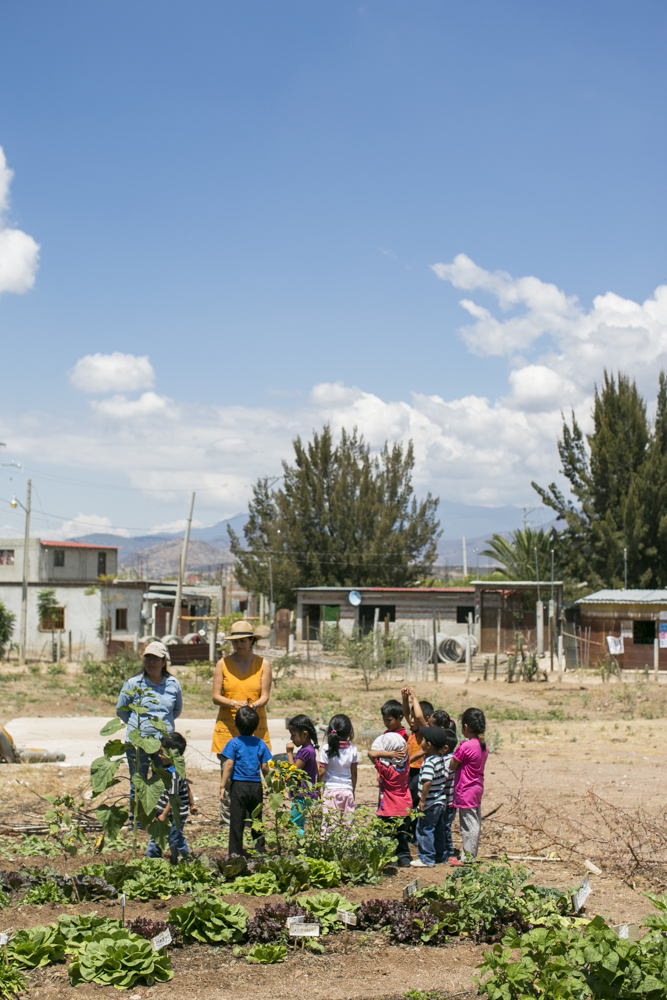
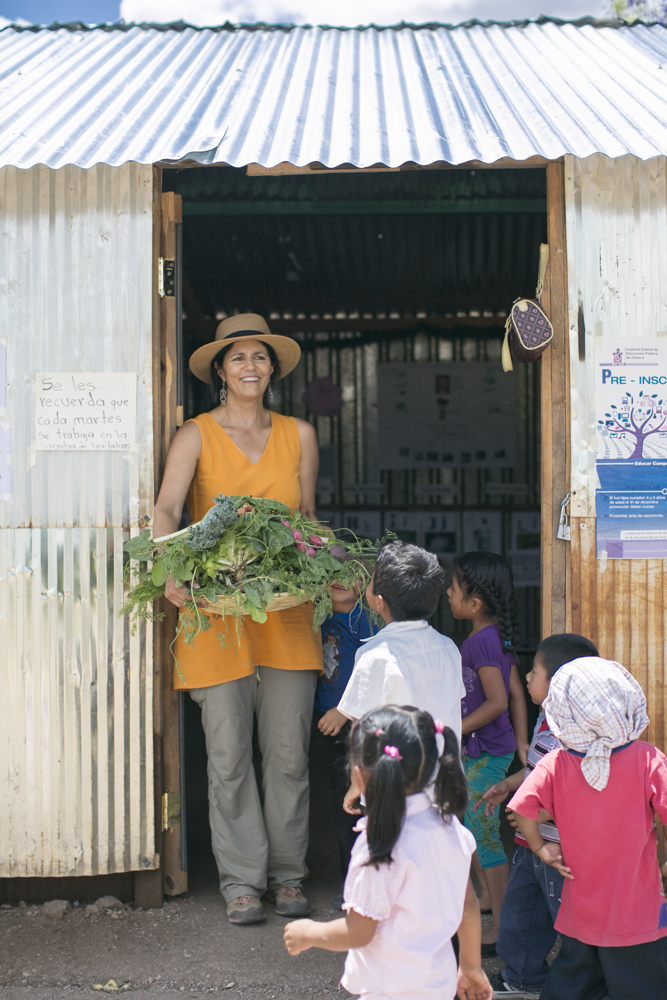
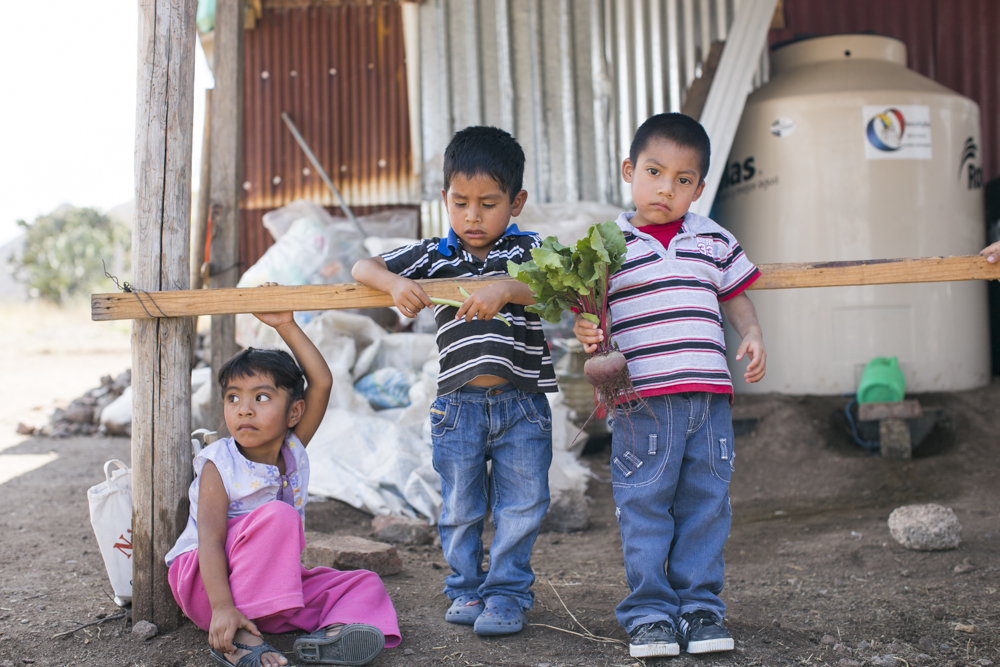
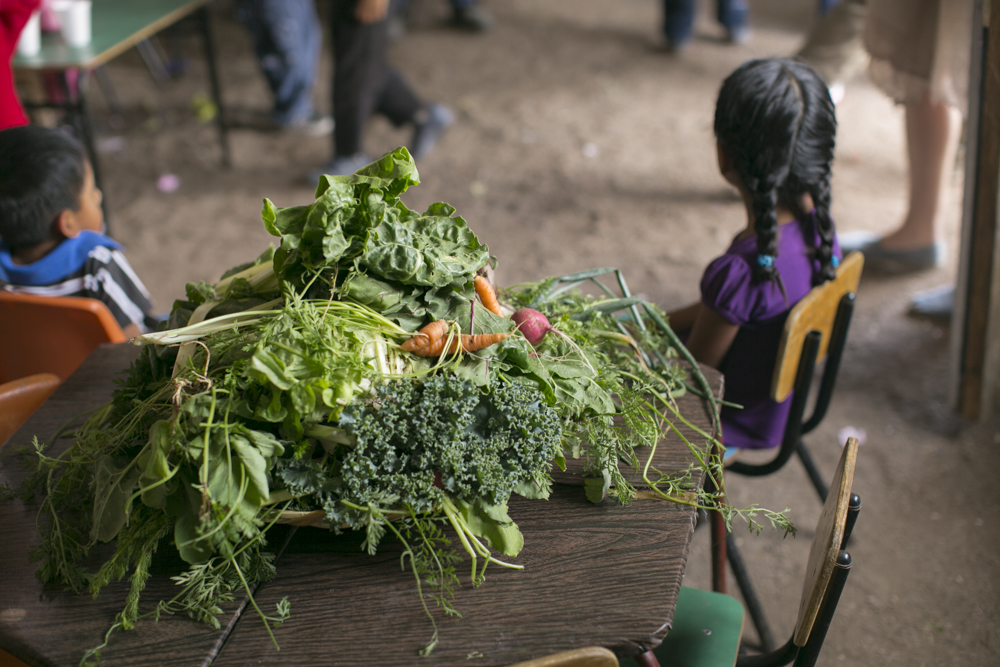
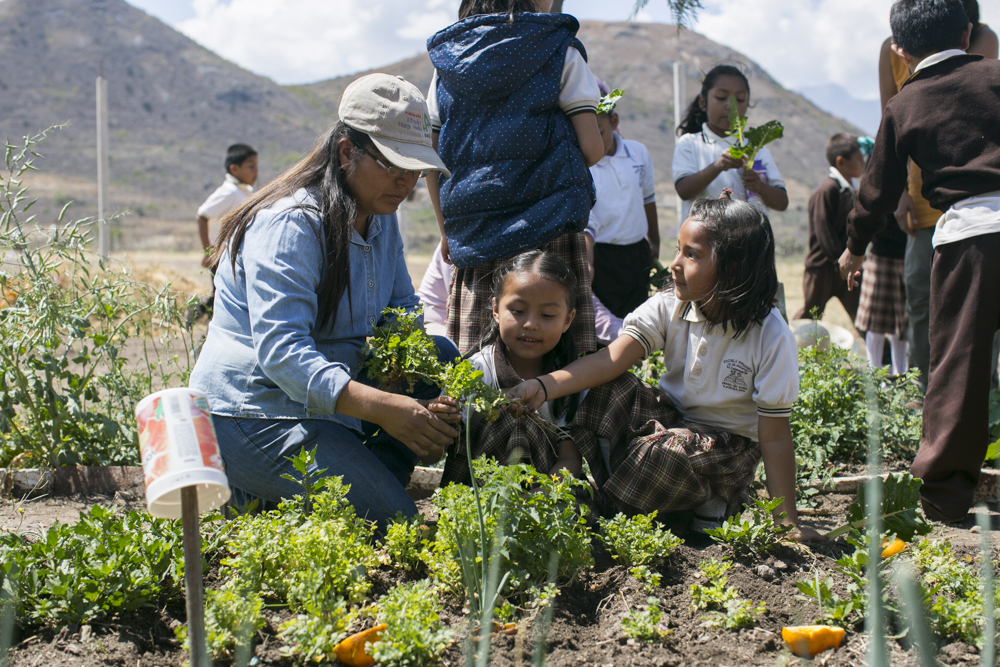
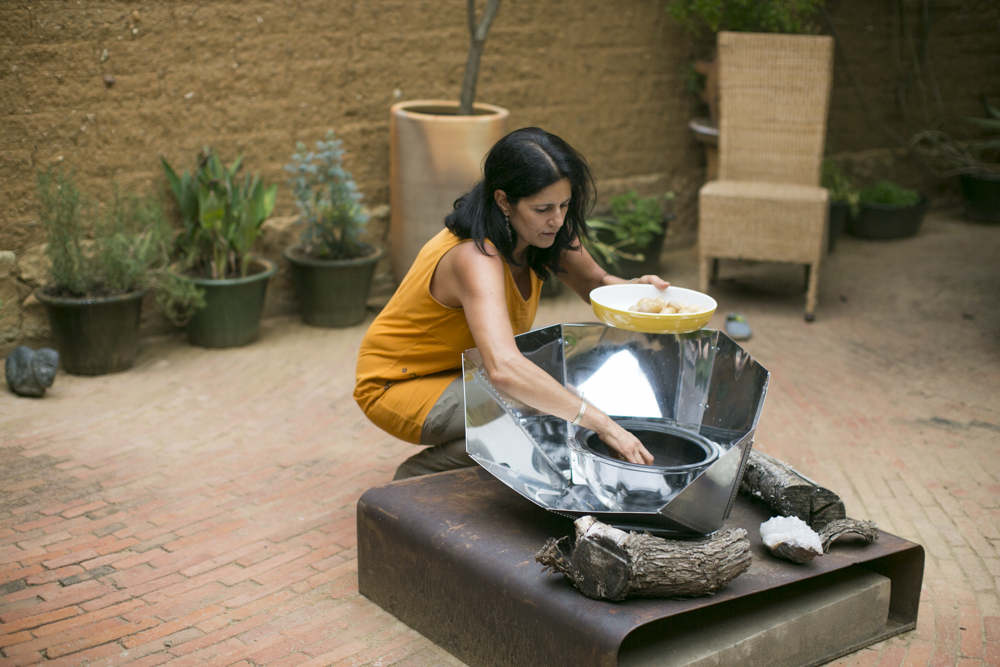
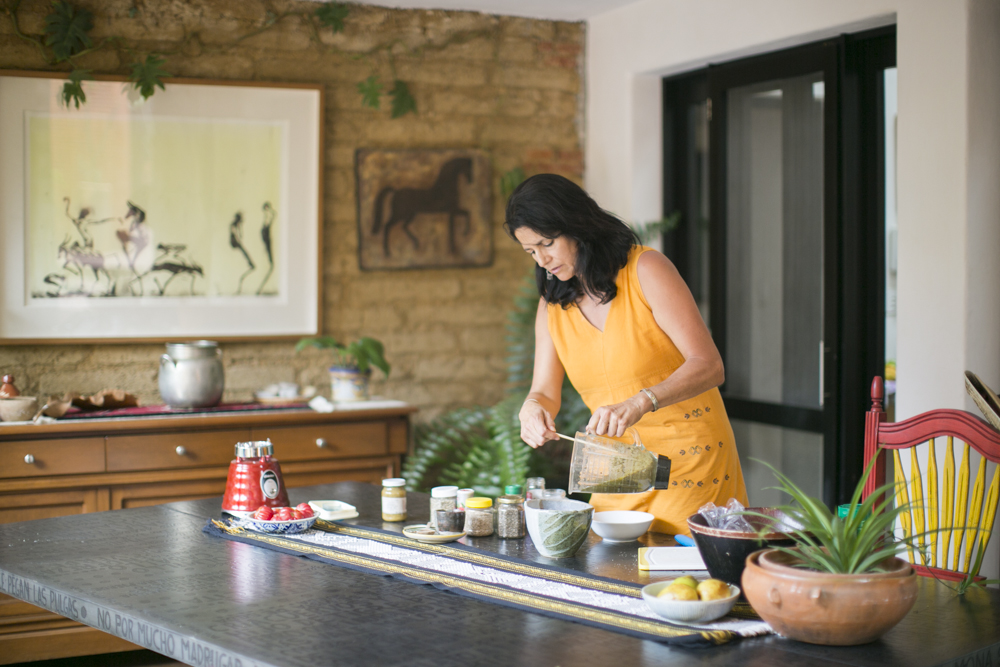
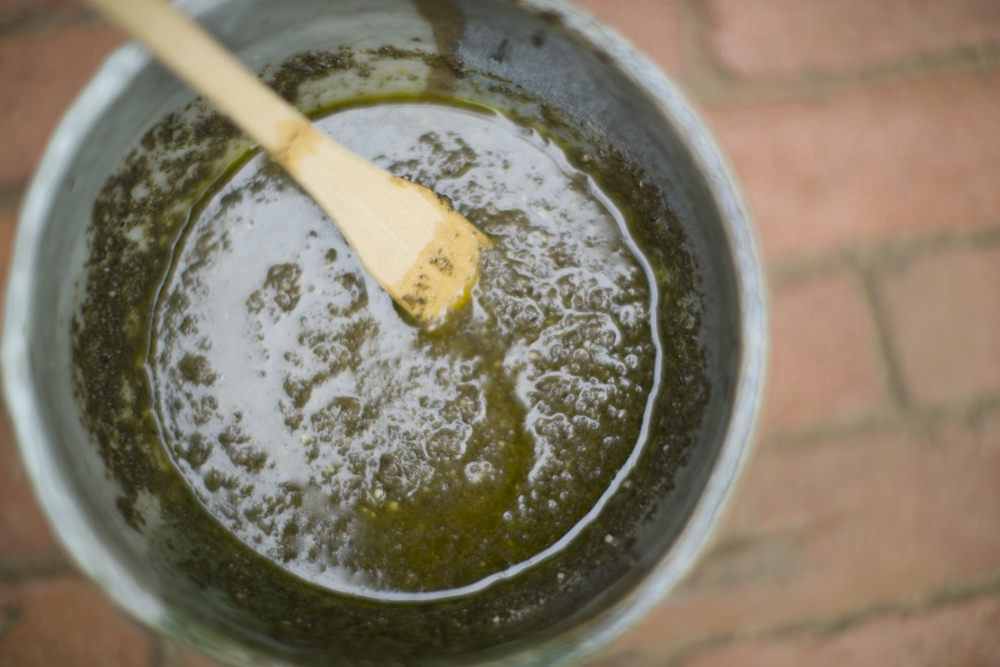
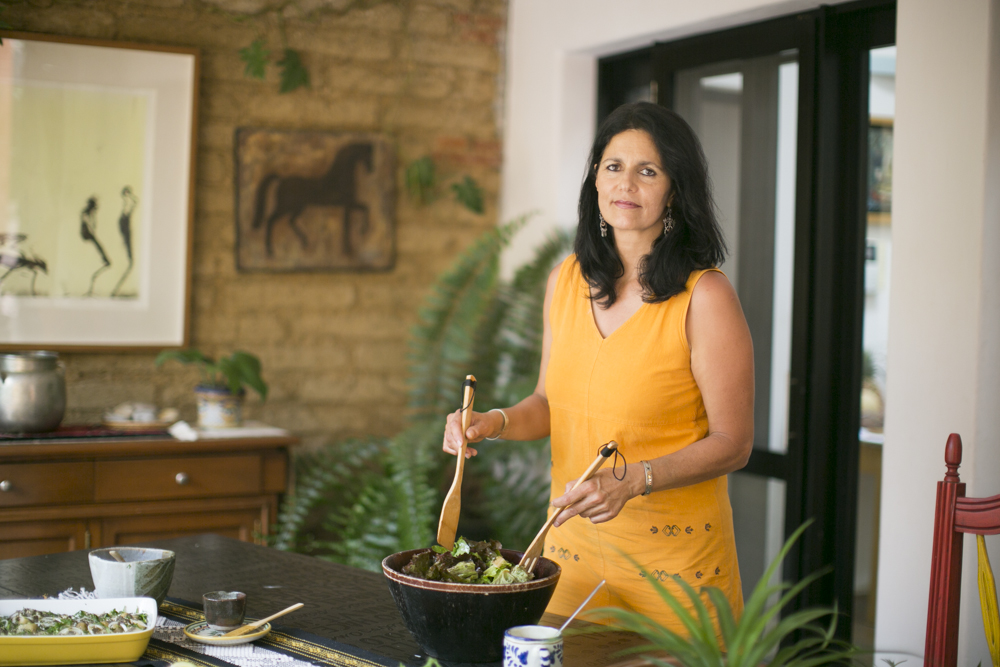
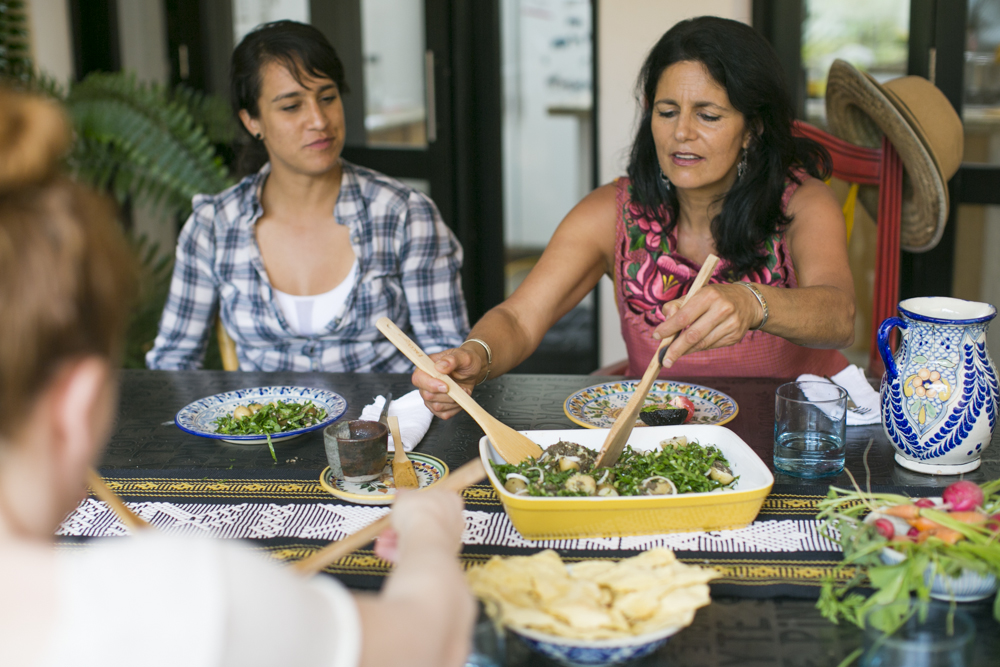
NOTES
Great salad for a picnic or a party — the potatoes are on a bed of hearty greens that won’t wilt with time. You can substitute thinly sliced lacinato kale or collards for the chard, just be sure to massage them briefly with oil and sea salt to soften.
RECIPE
DIFFICULTY
EASY
SERVES
4
PREP TIME
35 MINS
Black Olive Pesto
-
1/2cuppitted kalamata olives
-
1/4cup + 1 tspalmond meal (you can grind this or buy it ground)
-
2clovesgarlic
-
1cupolive oil
-
1tbscapers
-
1/2tspdried oregeno
-
1tbsfreshly ground parmesan cheese (optional)
Salad
-
1.5lbfingerling poatoes
-
1tspolive oil
-
1bunchswiss chard
-
1/2smallwhite onion, thinly sliced
-
1lemonjuiced
-
salt and pepper to taste
POSTED UNDER
- mexico,
- oaxaca,
- VEGETARIAN
Lorena Harp is spreading the salad gospel in Oaxaca, Mexico. A native of Oaxaca City, Lorena raised three kids here, and she has committed her life to teaching the value of growing your own food and eating organically. Her organization, Huertos Organicos, addresses both the access to fresh produce in Oaxaca’s worst food deserts, and, distributes an incredibly simple solar oven to as many of the local people as they can. The oven is a collapsible origami-like metal cradle for a pot, which harnesses the rays of the sun to bake, boil, or steam anything your heart desires. No fuel or electricity required.
On a recent trip to Oaxaca, I spent the day as Lorena’s shadow, driving out to small schools where her organic gardens and related educational programs were in full effect. The first place we stopped was a school attached to a brand new housing development, in an area so stark and dry, each child brings one full water bottle from home to feed the garden everyday. Through this communal effort, the Huertas Organicas team is able to send the kids home with chard, kale, radishes and carrots for their families. There was even enough for us to take home to make our salad, potatoes cooked in the solar oven, drizzled with pesto and tossed with organic chard.
Lorena Harp in Her Own Words
Julia: Did you grow up in Oaxaca? Have you lived here all your life?
Lorena: I was born, raised and have always lived in Oaxaca. I am here and I find it hard to leave it.
JS: What inspired you to start Huertos Organicos?
LH: I started six years ago. I was already promoting the use of solar ovens, and Alfredo Harp Helú Foundation invited me to start this project with them. I liked that the garden projects could dovetail with the solar oven project, as both promote sustainable food practice for the everyday lives of Oaxacan people.
JS: How did you become interested in the solar ovens?
LH: Some friends of mine were trying to distribute these very simple solar ovens, in an effort to reduce reliance on fossil fuels and again, to help Oaxacans living in small towns or without many resource to become more self-sufficiencient and self-reliant. They asked me to support them in their project, and showed me how to use the solar cooker. I was amazed, mesmerized; It is magical to cook with sunlight. Once I tried it I couldn’t stop. My little solar oven accompanies me wherever I go. We have a great choice in Oaxaca to pollute less, to help our health and save fossil fuels.
JS: How many gardens have you made in through the project and are they all in schools? Or are some in public spaces?
LH: Organic Gardens team of FAHHO ( Fundación Alfredo Harp Helú) has worked in 25 schools and institutions. We teach people how to make their own gardens, but we also provide training and support throughout the process for 1 year or more. Most of our gardens have been in schools, but we have also worked with groups of women from indigenous communities. This year we will create our first garden in a public space, the City Archives.
LH: Peter, Margarita and Adán help me run the individual gardens. They are all country people who have extensive experience growing healthy food. They love the land, and they have an extraordinary ability to convey and share their knowledge with the kids and their families. We recently had two more people join the team, Rosario and Karime. They are engineers with a great academic backgrounds. It really is a group effort.
JS: Is the idea of organic gardening as part of a child’s education a new idea for Oaxacans?
LH: It is definitely not new, but the state is very big and there is still so much room for the movement to spread.
LH: Shweta Bhattad, visual artist from India and living in Vancouver, invited us to participate in his a project called I Have A Dream, for the Vancouver Biennale. We grew a garden for the project here in Oaxaca, whose beds were shaped like letters. Together, the series of vegetable beds spelled ‘I have A Dream,” in Zapotec. He invited dozens of farmers in different parts of the world to participate in the same project.
We celebrated the project on Harvest Day in San Miguel del Valle in Tlacolula, and the local people took home plenty of food for their families. It was a great celebration of the fertility of the land. A video recording of our making of the project will be projected during the Biennale, alongside all the other countries who participated in the piece.
JS: What do you do when you are not working?
LH: I cook and experiment as much as possible with my solar cooker; I really enjoy that. But the best thing for me is to spend time with Gibran, my organic grandson of 9 months old. He is the best gift that life has given to me.
